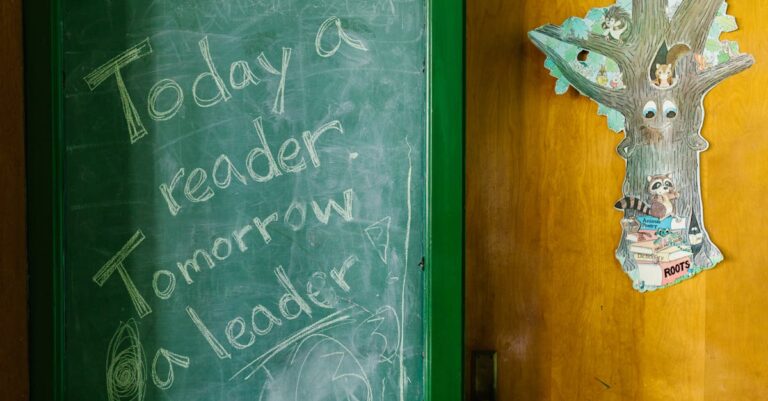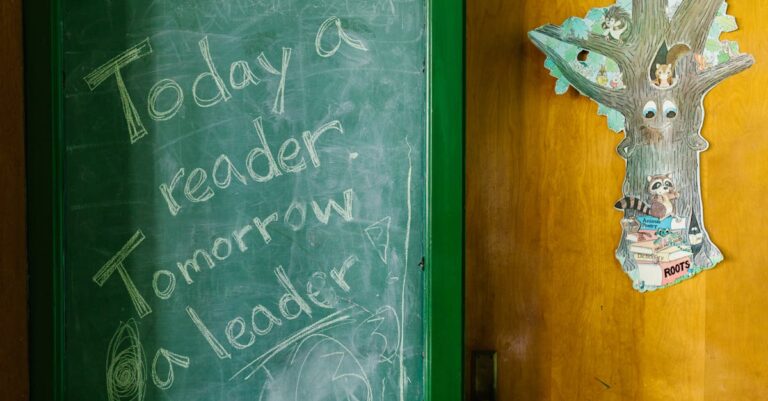Table of Contents
ToggleChoosing a college can feel like picking a favorite child—impossible and fraught with emotional turmoil. With thousands of options and countless majors, the journey of college exploration can be both exhilarating and overwhelming. But fear not! This adventure is about more than just finding the right campus; it’s about discovering a place where dreams take flight (and where the cafeteria food might not be terrible).
Overview of College Exploration
College exploration involves navigating a myriad of options, including various institutions and majors. Students encounter choices that can influence their academic and career paths. Researching different colleges helps individuals understand what each institution offers and whether it aligns with their aspirations.
Visiting campuses allows students to experience the environment firsthand. Engaging with current students and faculty provides insight into campus culture and academic life. Attending open houses and information sessions enhances knowledge about specific programs and resources available at each college.
Evaluating factors like location, size, and extracurricular opportunities plays a critical role in decision-making. Students should consider the academic rigor and support services available at their prospective colleges. Cost is another important consideration; understanding tuition, fees, and financial aid options can impact the overall college experience.
Targeting institutions that fit personal interests increases the chance of satisfaction and success. Setting goals for personal and academic achievements helps narrow down choices. Tracking application deadlines and requirements ensures a smoother process as students enter their senior year of high school.
Exploration isn’t solely about academics; social aspects matter too. Finding the right balance between study and leisure contributes to overall well-being during college years. Prioritizing personal growth and discovery fosters a fulfilling college journey, making each step in the exploration process vital to future success.
Importance of College Exploration

College exploration plays a critical role in shaping academic and social paths. Students gain insights into potential campuses and majors through this process.
Academic Factors
Academic factors significantly impact college selection. Program offerings vary greatly among institutions, affecting future career opportunities. Different colleges emphasize distinct majors, so aligning an interest with available programs proves essential. Faculty expertise contributes to the learning experience, as knowledgeable professors enhance educational outcomes. Class sizes can influence engagement; smaller classes often allow for personalized attention. Evaluating academic rigor helps students match their capabilities with desired challenge levels. Financial aid availability, including scholarships and grants, also influences decision-making during the exploration.
Social Factors
Social factors contribute immensely to the overall college experience. Campus culture shapes daily life and fosters a sense of belonging. Opportunities for student engagement, from clubs to organizations, enhance social interactions. Diverse student bodies introduce individuals to new perspectives and deepen understanding of various backgrounds. Locations near urban areas can provide additional amenities and activities, enriching the social scene. Supportive services, including counseling and mentorship programs, bolster personal growth and resilience. Establishing connections with peers during exploration can lead to lasting friendships and enhance the college journey.
Methods of College Exploration
Exploring colleges effectively involves various methods. Each method offers unique insights into potential institutions and helps clarify personal preferences.
Campus Visits and Tours
Campus visits provide invaluable experiences. During these visits, prospective students explore facilities, speak with current students, and observe daily campus life. Personal interactions with faculty members can also reveal classroom dynamics. Visiting in-person allows students to assess campus culture, location, and available resources. Engaging with admission offices during these tours can facilitate questions about application procedures and financial aid options. Many campuses offer guided tours, which can highlight significant features and historical context. Exploring different campuses leads to a clearer understanding of where students feel most comfortable.
College Fairs and Events
Attending college fairs exposes students to numerous institutions in one setting. These events often feature representatives from various colleges, who provide brochures, answer questions, and discuss admissions criteria. Engaging in conversations with admission staff helps students clarify specific interests and explore options. Workshops offered at these fairs cover topics like financial aid and application strategies. Networking with peers and other attendees can offer diverse perspectives on the college search process. Participating in regional or national college fairs connects students with institutions they may not consider otherwise.
Online Resources and Tools
Utilizing online resources streamlines the college exploration process. Websites like College Board and Niche offer extensive databases of colleges, allowing students to filter options based on preferences. Virtual campus tours provide glimpses into campus layout and facilities, making distant exploration accessible. Resources also include college comparison tools that evaluate factors like tuition rates and academic offerings. Social media platforms allow students to connect with current students who share insights about their experiences. Online forums also offer discussions that help in gathering advice and tips from fellow applicants.
Challenges in College Exploration
Navigating the college exploration process involves several complex challenges. Financial considerations stand out as a significant hurdle.
Financial Considerations
Affordability determines many students’ college choices. Tuition rates vary widely among institutions, affecting overall costs. Students must account for expenses like housing, books, and activity fees alongside tuition. Scholarships and financial aid availability play crucial roles in limiting out-of-pocket costs. Investigating potential return on investment helps students weigh their options. Balancing quality education and affordability ensures long-term benefits in pursuit of successful careers.
Information Overload
Information overload complicates the college exploration process. Countless colleges and universities exist, leading to overwhelming choices. Each institution provides unique programs, campus sizes, and admission requirements. Sorting through websites, brochures, and social media can be daunting for prospective students. Exploring college fairs and guided tours clarifies essential information. Engaging with current students helps demystify campus culture and supports informed decisions. Focusing on specific personal goals helps narrow down choices effectively.
Navigating the college exploration journey can be both thrilling and overwhelming. Each decision made shapes not just academic paths but also personal growth and future opportunities. By actively engaging in research and campus visits students can uncover the best fit for their aspirations and needs.
It’s essential to balance academic interests with social factors and financial considerations. Building connections and seeking support can enhance the overall experience. Ultimately the right college choice lays the foundation for a fulfilling and successful future. Embracing this exploration process is a crucial step toward achieving one’s goals and dreams.







